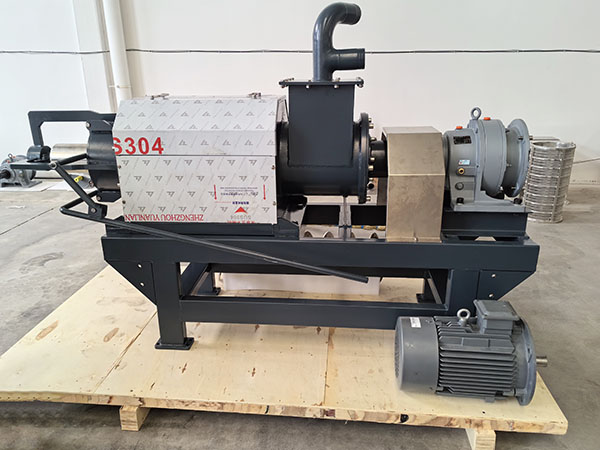Manure management is a critical aspect of agricultural operations, particularly in livestock farming. Proper handling of manure not only ensures environmental sustainability but also maximizes its potential as a valuable resource. Slurry separators play a significant role in this process by efficiently separating solid and liquid components of manure. In this comprehensive guide, we delve into the importance, functionality, and benefits of slurry separators in manure management.
Importance of Manure Management
Manure, a byproduct of animal farming, contains valuable nutrients such as nitrogen, phosphorus, and potassium. However, if not managed properly, it can lead to environmental pollution, including water contamination and greenhouse gas emissions. Effective manure management practices are essential for mitigating these risks and optimizing the benefits of manure as a natural fertilizer.
Understanding Slurry Separators
Slurry separator is a kind of solid-liquid separator, which is mechanical devices designed to separate solid and liquid components of manure. These devices are typically employed in dairy farms, swine operations, and other livestock facilities to efficiently process large volumes of manure. The common slurry separator include screw separator and sloped screen separator.

Functionality of Slurry Separators
Slurry separators utilize various mechanisms to separate solids from liquids. The most common method involves the use of screens, centrifugal force, or gravity to separate heavier solid particles from the liquid phase. Some advanced separators employ filtration systems or chemical additives to enhance separation efficiency.
Benefits of Slurry Separators:
1. Nutrient Recovery: Slurry separators enable the extraction of valuable nutrients, such as nitrogen and phosphorus, from manure solids. These nutrients can then be recycled and used as organic fertilizers, reducing the reliance on synthetic fertilizers and promoting sustainable agriculture.
2. Reduced Environmental Impact: By separating solid and liquid components, slurry separators minimize the risk of nutrient runoff and water pollution. This helps to protect water quality and ecosystem health, mitigating the environmental impact of livestock farming.
3. Improved Manure Handling: Separating solids from liquids makes manure easier to handle and transport. Solid manure can be composted or used as bedding material, while liquid effluent can be stored and applied to fields more efficiently, reducing odors and minimizing nutrient losses.
4. Compliance with Regulations: Many regions have strict regulations governing manure management practices to prevent environmental contamination. Slurry separation system helps farmers comply with these regulations by reducing nutrient runoff and ensuring proper handling of manure.
5. Cost Savings: Efficient manure management can result in cost savings for farmers by reducing the need for chemical fertilizers, minimizing waste disposal costs, and improving overall farm productivity.
Factors to Consider When Choosing a Slurry Separator
When selecting a slurry separator for their operation, farmers should consider factors such as the size and type of livestock, the volume of manure produced, available space and infrastructure, budget constraints, and specific regulatory requirements.
Conclusion
Slurry separators play a crucial role in modern manure management systems, offering numerous benefits for farmers, the environment, and society as a whole. By efficiently separating solid and liquid components of manure, these devices help to recover valuable nutrients, minimize environmental impact, improve manure handling practices, and ensure compliance with regulations. As the agricultural industry continues to evolve, the adoption of slurry separators is likely to become increasingly widespread, contributing to sustainable and responsible livestock farming practices.
Copyright:@2020-2021
Comments Please sign in or sign up to post.
0
0 of 500 characters used